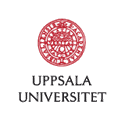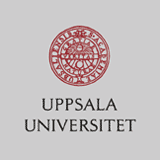Migration and Health - Conducting research with migrant populations, 4.5 hp
| Kursnummer | 50 |
| År | 2023 |
| Typ | Subjectcourse |
| Spår | - |
| Max antal deltagare | 20 |
| Sista ansökningsdag | 2023-06-15 |
| Språk | En |
| Kursansvarig | Raziye Salari & Georgina Warner |
| Institution | Department of Public Health and Caring Sceiences |
| Besöksadress | BMC, Husargatan 3 , 752 37 Uppsala |
| Postadress | Box 564 751 22 Uppsala |
| Datum | Weeks 37-39 |
| Lokal | A combination of online (zoom) and on-site (BMC, Uppsala) activities |
| Kurslängd | 3 weeks |
| Kursrapport | |
| Kursplan |
Beskrivning
Why this course?
Every year, many students embark on new research studies to understand the relation between migration and health and address the health needs of migrant populations.
However, the majority of these students have no previous experience in conducting research with migrant populations and are unprepared for the challenges that lie ahead; practical challenges such as difficulties in engaging the target population, or ethical challenges such as obtaining informed consent, offering tangible benefits and reciprocity. The current course aims to address this gap and provide the students with the necessary knowledge, sensitivity and skills to work with migrants and refugees.
The course will also be a useful resource for any student interested in improving the representativeness of their sample by increasing the number of participants from non-Swedish background involved in their studies.
Requirements:
Registered for graduate studies in Sweden
Selection procedure
We will give priority for admission to students registered at Uppsala University and those who conduct research with migrant populations. Information about admittance will be sent out by email 1-2 weeks after the application is closed.
Preliminary schedule
11-15/9 (online), 18-20/9 (on site), 25-29/9 (online)
Inlärningsmål
Learning outcomesOn completion of the course, participants will be able to
Knowledge and understanding
• explain basic terminology, concepts and theories related to migration and health
• describe how migration can affect health and well-being
Competencies and skills
• identify, assess and address linguistic and cultural barriers to engaging migrants in research studies
• analyse and reflect on ethical issues in research with migrants particularly children
• identify and address challenges in data collection with migrants particularly children
• identify and address challenges in intervention studies with migrants particularly children
• identify and address challenges related to using digital tools in conducting research with migrants particularly children
• analyse and reflect on challenges in using a participatory research framework to studies with migrants
Judgment and approach
• understand the challenges and opportunities in working with migrant communities and responsibility of researchers for ensuring they do more good than harm
• critically evaluate project plans in the migration context informed by relevant theories, ethical and practical considerations
Innehåll
Description of course content
The course will cover issues related to conducting research with migrants particularly those with a refugee background. Undertaking a participatory approach to the studies will be an overarching theme through the course. Students will learn about the importance of involving the target population in designing and conducting studies as well as in interpreting the findings and dissemination of the results. The course will cover a wide range of practical and ethical issues in engaging migrants as participants such as recruitment to studies, informed consent, using interpreters, and data collection.
Kontakt
Georgina Warner (course leader): georgina.warner@pubcare.uu.se


